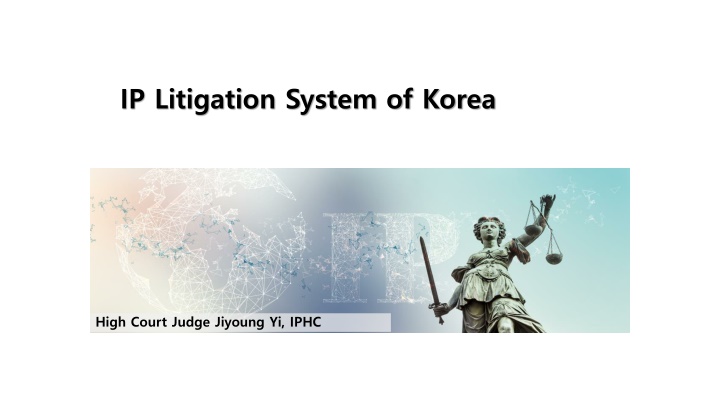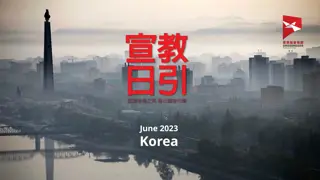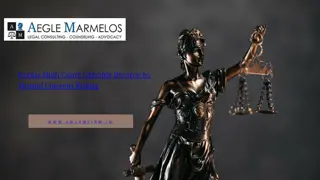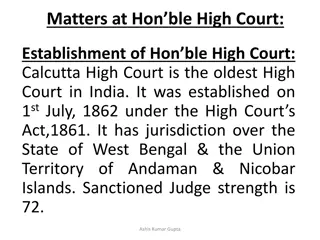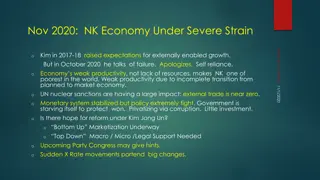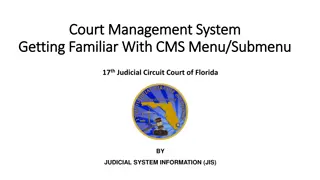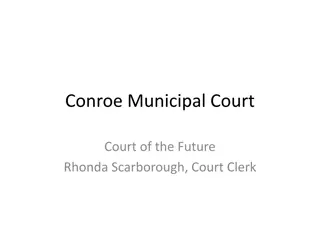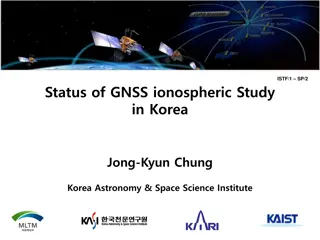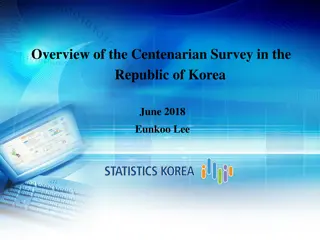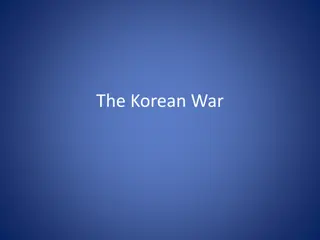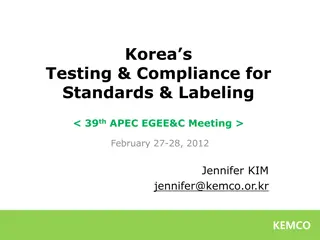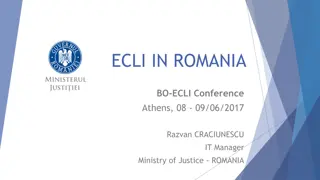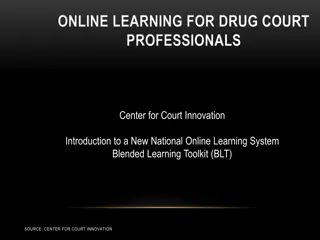High Court System of Korea: Overview and Structure
The High Court system in Korea, particularly focusing on the IP High Court, its history, jurisdiction, and the roles of judges, technical examiners, and legal researchers. It delves into the evolution of the court system over the years and the staff involved in the judicial processes. The post-2016 changes in the structure of the Supreme Court and High Courts are also highlighted, along with the different types of cases handled by the courts.
Download Presentation

Please find below an Image/Link to download the presentation.
The content on the website is provided AS IS for your information and personal use only. It may not be sold, licensed, or shared on other websites without obtaining consent from the author.If you encounter any issues during the download, it is possible that the publisher has removed the file from their server.
You are allowed to download the files provided on this website for personal or commercial use, subject to the condition that they are used lawfully. All files are the property of their respective owners.
The content on the website is provided AS IS for your information and personal use only. It may not be sold, licensed, or shared on other websites without obtaining consent from the author.
E N D
Presentation Transcript
IP Litigation System of Korea High Court Judge Jiyoung Yi, IPHC
History 2023. 2. Patent court IP High Court 2016. 1. 1. Centralized Jurisdiction over Civil Appeals 1998. 3. 1. Establishment of the Patent Court KIPO Patent Court Supreme Court 1995. 9. 28. Constitutional Court Decision violation of the right to trial by judge KIPO Supreme Court System
Before 2016 Patent rights, Trademark rights, Design patent rights Supreme Court IP High Court Five High Courts Revocation Revocation Appeals Appeals District Courts Civil cases on the merits (permanent injunctions, damages) Civil preliminary injunctions Criminal cases IPTAB Appeals against rejection and Invalidity Administrative Decision Judiciary Decision
After 2016 Supreme Court Six High Courts IP High Court Appeal (Preliminary injunction, Criminal cases) Appeal (Permanent injunction, Damages) Revocation IPTAB District Courts Appeal against rejection, Invalidity Civil cases : Injunction, Damages Criminal cases Administrative Decision Judiciary Decision
Court staff 17 Judges 5 Judicial panels (3 Judges in each panel) 23 Judicial technical examiners 3 Legal researchers
Groups of judges Seoul High Court High Court Judges Rotation High Court Judges Appointment Presiding Judges Judges Rotation Judges IP High Court District courts
Judges Judicial Technical Examiners Expert Technical Advisors IPHC Researchers in International IP law research center Expert Witnesses
Judicial Technical Examiners Staff of IPHC Qualified in specific technical areas Provide written technical assessment prior to the trial date Elucidate technical matters, Present opinions Question litigants directly with the presiding judge s approval
Expert Technical Advisors Selected from a pool by panel Professors, researchers Offer explanations and opinions through written assessments Question the parties with the permission of presiding judge
Expert Witnesses expert witness testimony Assess the skill level of PHOSITA at the time of filing Analyze the content of prior arts Compare patent rights with the configuration of the infringing product Determine damages, reasonable royalties etc.
Video Trial System Date Dec. 5, 1995 Mar. 29, 2016 Introduced for areas of poor transportation access Video examination for witnesses, appraisers, and expert witnesses Pretrial hearing (Due to COVID 19) June 1, 2020 Presentation material Judge Attorney Technical Examiners
Electronic Case Filing System (ECFS) Date April 26, 2010 IP High Court cases May 1, 2011 Certain civil cases January 1, 2012 All civil cases January 21, 2013 Family and administrative cases September 16, 2013 Preliminary attachment/injunction petitions April 28, 2014 Rehabilitation and bankruptcy March 23, 2015 Civil execution and non-contentious cases Type of cases where ECFS was introduced Over 99% of IP cases have been processed as electronic litigation since 2020 in the IPHC.
International trials Subject of International Cases A foreigner as a party Primary evidentiary investigation needs to be carried out in a foreign language Other circumstances with international relevance equivalent to above cases Requirements Mutual consent of the parties Permission of the court Multilingual Support in Court Simultaneous interpretation provided Individuals can use any of the Five languages in court (English, French, German, Spanish, Chinese) Translation services for documents provided
